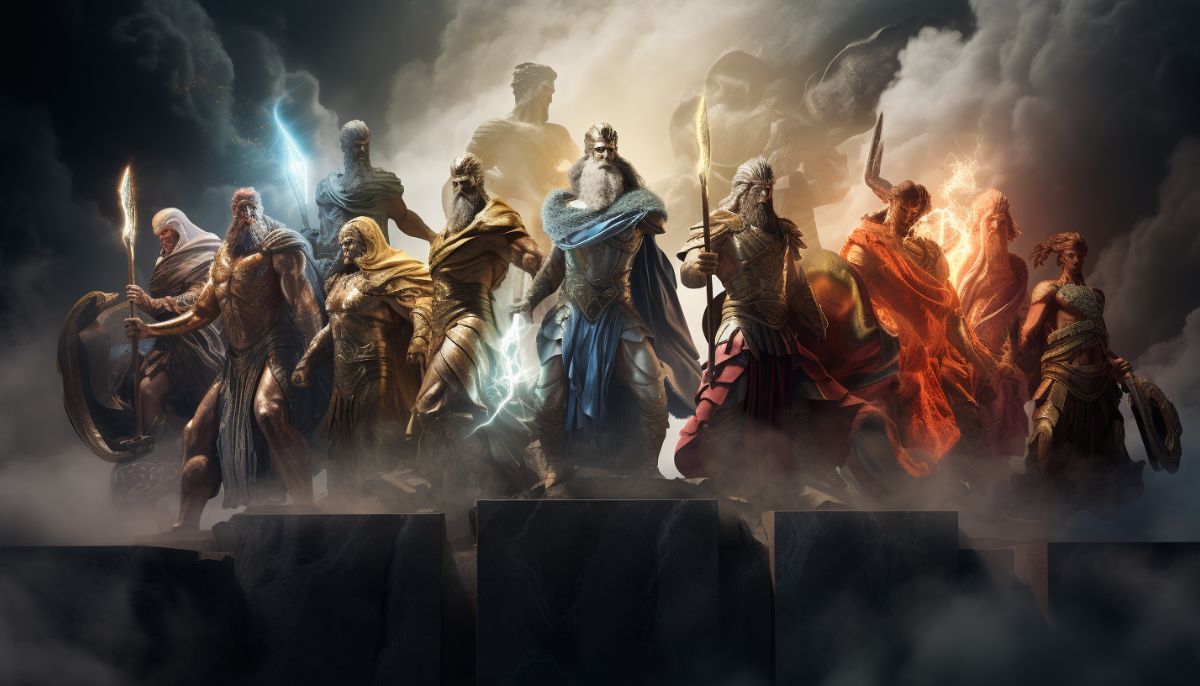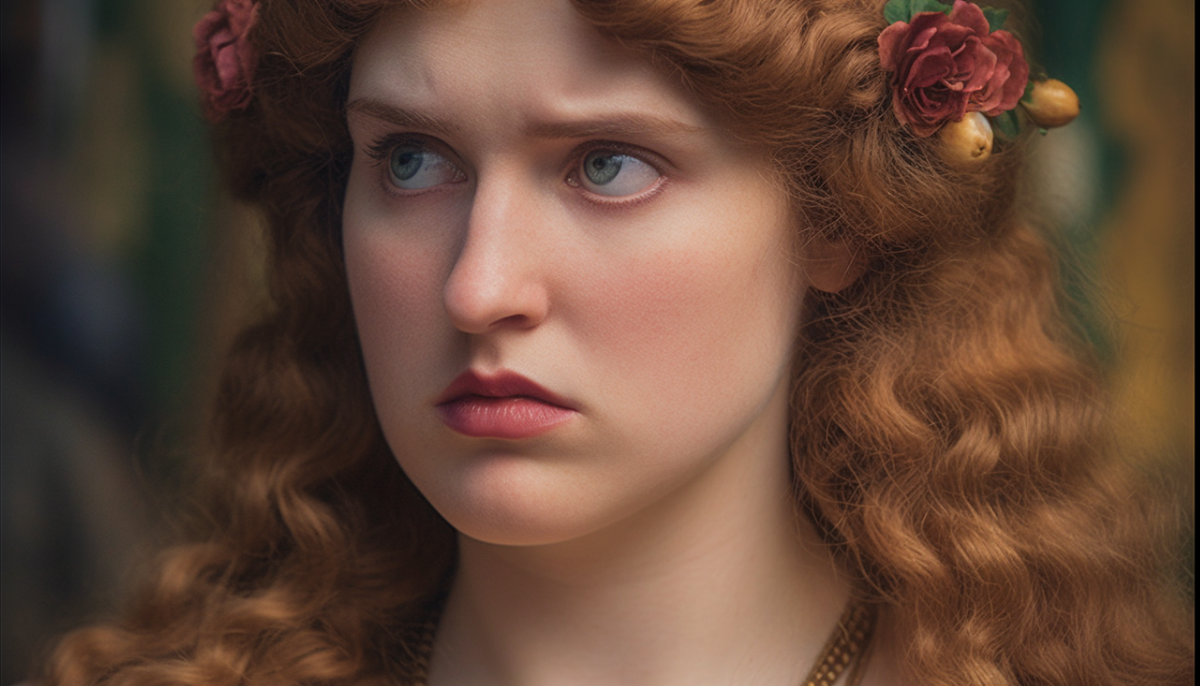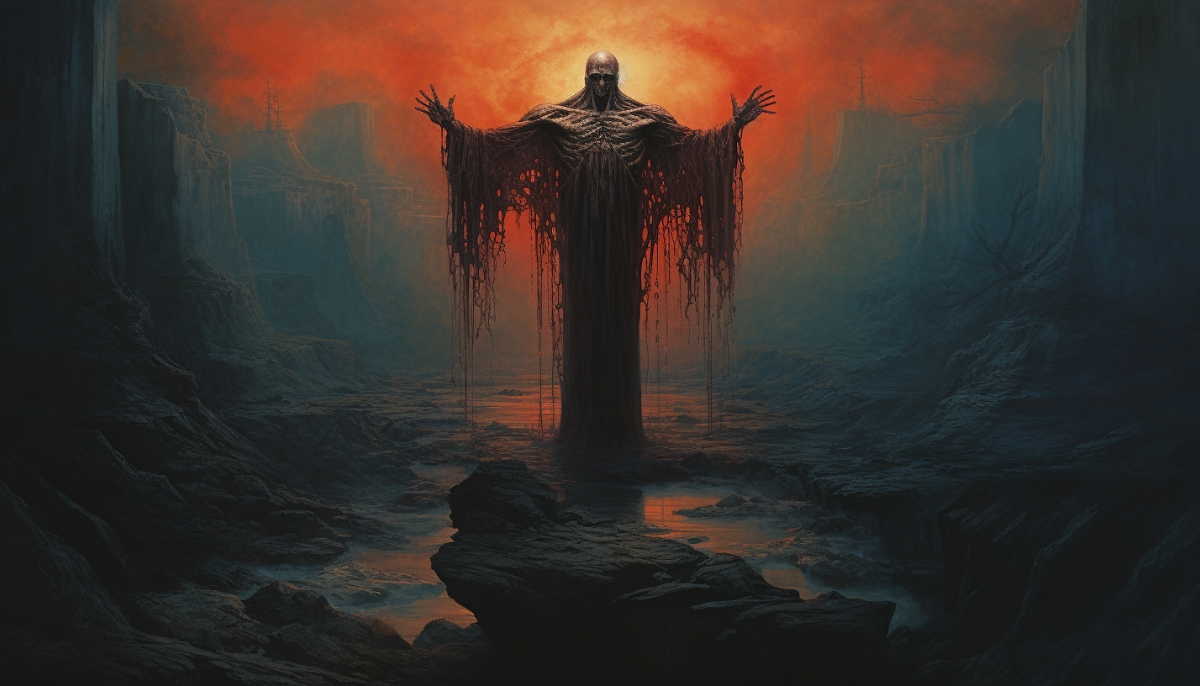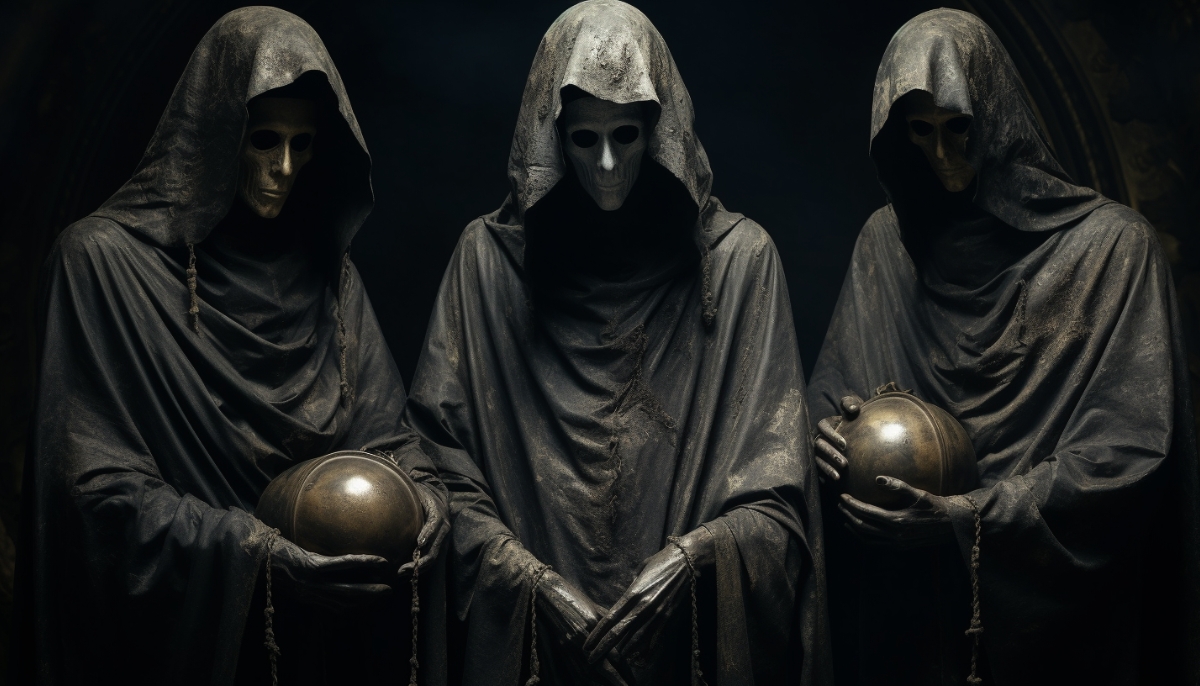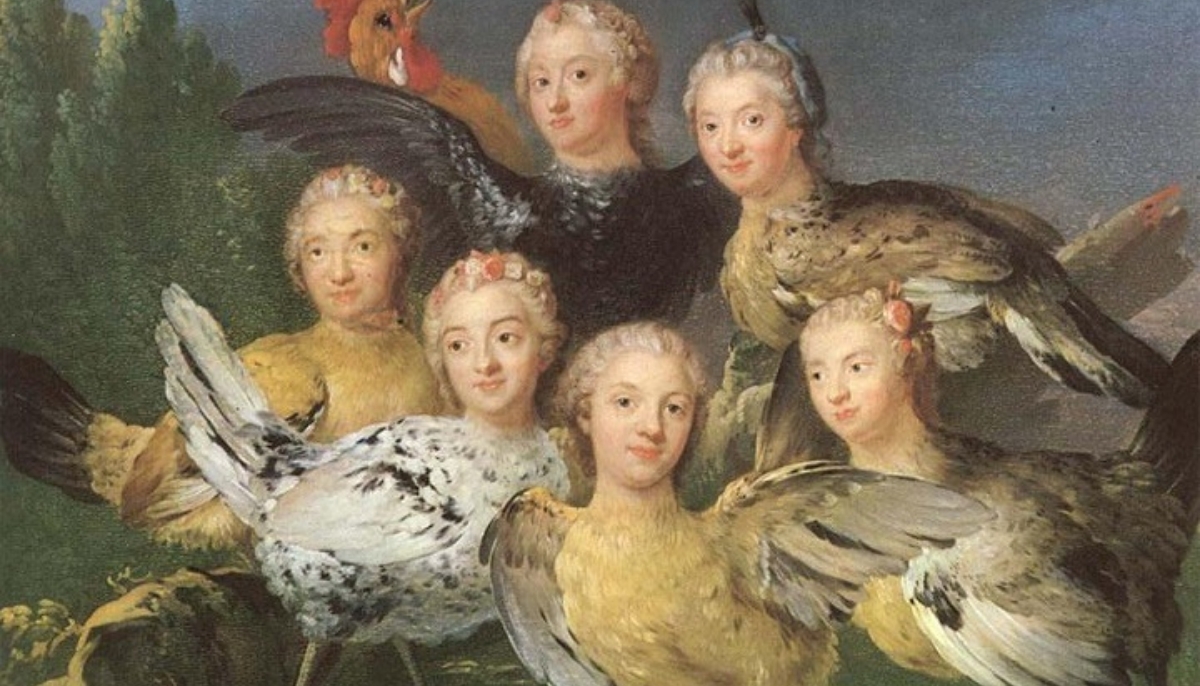Delve into the captivating world of Greek mythology’s Twelve Olympian Gods. From Zeus to Aphrodite, each deity holds a unique place in the tapestry of divine tales.
Join us on a journey through the ages as we unveil their stories and lasting impact. Embark on this odyssey into the heart of Greek mythology’s enchantment.
Understanding the Significance of the Twelve Olympians in Greek Mythology
The Twelve Olympian Gods are at the heart of Greek mythology, a pantheon renowned for its commanding influence and captivating narratives. These deities derive their name from the majestic Mount Olympus, the mythical abode where they reign supreme. But their ascension to this divine pinnacle wasn’t without challenge.
In a titanic struggle that spanned a decade, the Olympians, led by Zeus, waged a fierce war against the Titans, their predecessors. This colossal conflict, known as the Titanomachy, was a cataclysmic clash between old and new gods, where the Olympians triumphed, establishing their supremacy and shaping the cosmos. This hard-fought victory secured their significance as the primary gods in Greek mythology, ushering in an era of divine rulership that would resonate throughout the ages.
Now, let’s delve into the profiles of these Twelve Olympian Gods, each embodying unique traits, stories, and realms of power that define their eternal presence in the pantheon of human imagination.
Who are the twelve Olympian gods of the Greek Pantheon?
While the Twelve Olympian Gods hold a central position in Greek mythology, the domain of Mount Olympus is not limited solely to this revered group.
Other deities, lesser in stature but no less intriguing, share this divine dwelling. Among these intriguing tales is the story of Heracles, a mortal of exceptional valor, who was reputedly offered a place among the Twelve Olympians.
His refusal, out of respect for the established order, underlines the complicated dynamics that shape this celestial assembly.
Did Hades have children with Persephone?
The Mighty Twelve: A List of the Olympian Deities
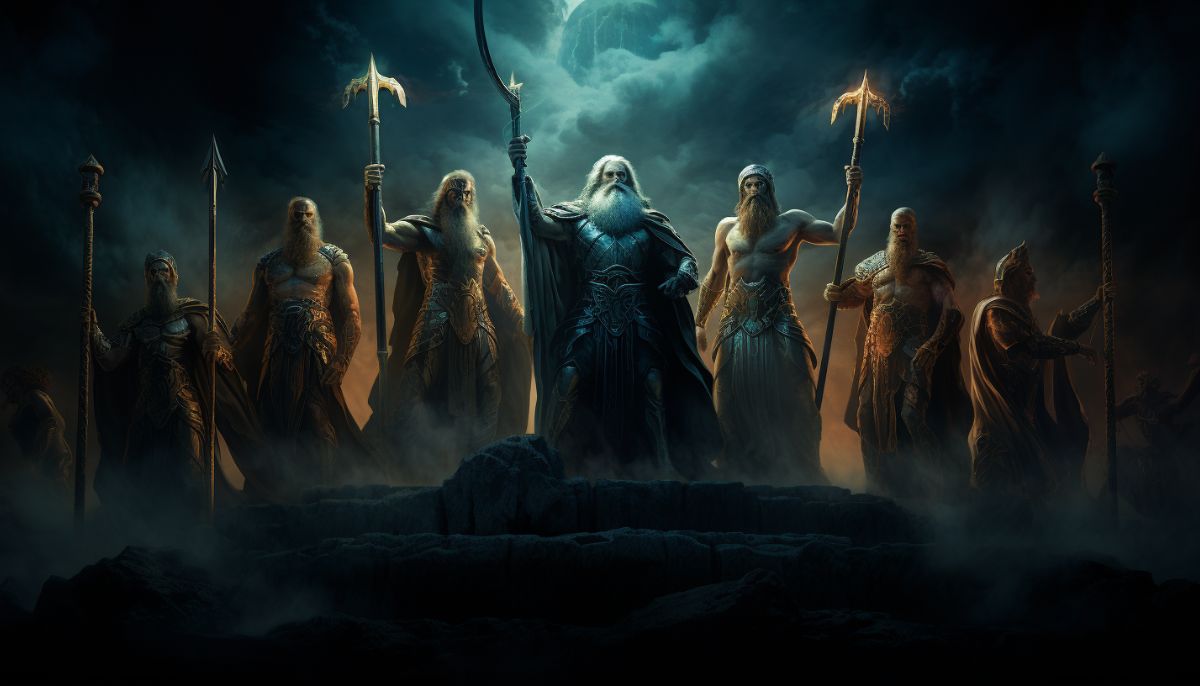
These are the canonical twelve gods that make up the Greek Pantheon:
- Zeus: King of the Gods and Ruler of the Sky
- Poseidon: Lord of the Seas and Earthshaker
- Hera: Queen of Heaven and Goddess of Marriage
- Demeter: Bestower of Agriculture and Seasons
- Aphrodite: Goddess of Love and Beauty
- Athena: Patroness of Wisdom and Strategy
- Artemis: Huntress of the Moon and Wilderness
- Apollo: God of the Sun, Music, Prophecy, and Healing
- Ares: God of War and Battle
- Hephaestus: Master of Fire and Blacksmithing
- Hermes: Messenger and Guide of Souls
- Hestia: Keeper of the Hearth or God of Wine and Revelry
The Roman equivalents of Greek gods
Divine Beings of Power: A Closer Look at Individual Olympian Deities
Within this dynamic pantheon, each Olympian deity plays a unique role, contributing to the delicate balance of the cosmos. Let’s delve into their stories and significance, uncovering how these gods shape the vivid tapestry of Greek mythology.
Zeus: King of the Gods, Ruler of the Sky, and Thunderbearer

Zeus commands the heavens and holds dominion over all gods. His thunderbolt signifies his authority and serves as the upholder of justice and order. As a protector and instigator, his relationships with other gods and mortals often lead to intricate dramas, shaping the mythological landscape.
Poseidon: Lord of the Seas, Earthshaker, and Tamer of Horses
Poseidon’s realm encompasses the vast oceans and the power of earthquakes. His trident symbolizes his control over the deep. Brother to Zeus and Hades, Poseidon’s interactions with fellow deities and mortals result in destructive tempests and benevolent blessings.
Hera: Queen of Heaven, Protector of Marriage, and Family Matron
As Zeus’s consort, Hera embodies the goddess of marriage and family. Her influence extends to both divine and mortal unions. While her relationship with Zeus is marked by conflict, her interactions with other gods often reveal her protective and authoritative nature.
Demeter: Goddess of Agriculture, Fertility, and Seasons
Demeter’s domain is the fertility of the earth and the cycle of seasons. Her love for her daughter Persephone and the myth of her descent to the underworld shape her interactions with gods like Hades and Zeus, illustrating her dual nature of nurturing and sorrow.
Aphrodite: Goddess of Love, Beauty, Desire, and Affection
Aphrodite’s charm is unparalleled as the goddess of love and desire. Born from sea foam, she influences romantic unions and the delicate balance of power among gods, igniting passion and discord alike.
Athena: Goddess of Wisdom, Strategy, Warfare, and Civic Order
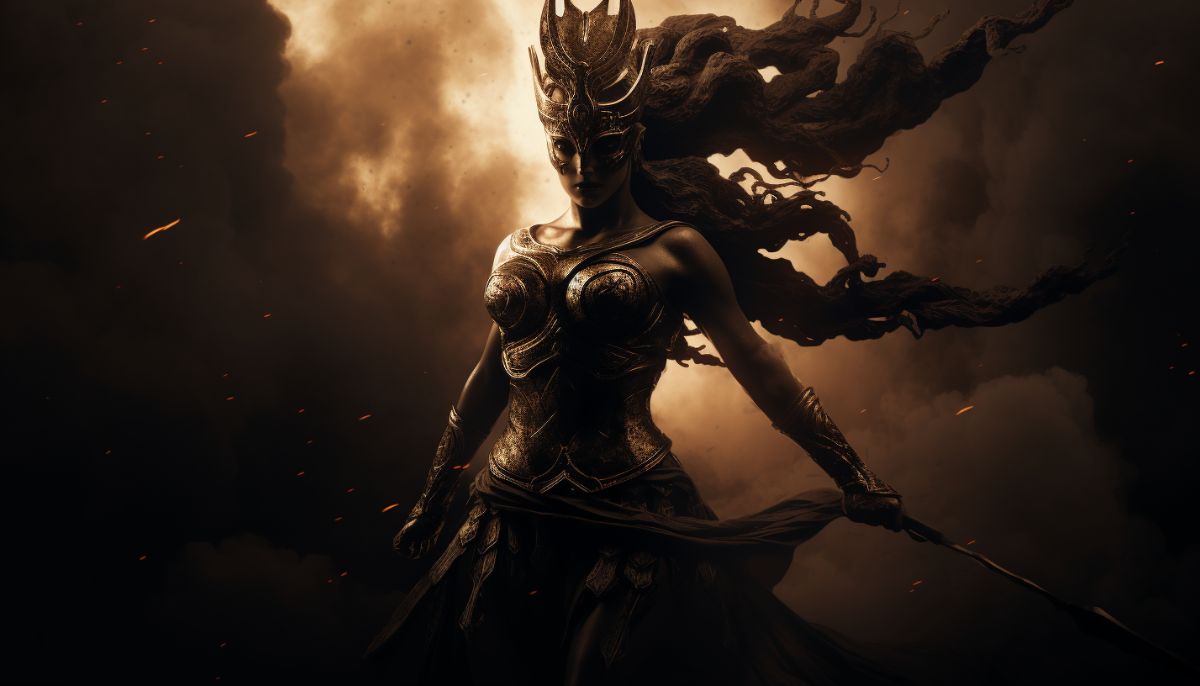
Athena embodies wisdom, intellect, and strategic warfare. Emerging fully grown from Zeus’s head, she’s a symbol of divine intellect. Her connections with other gods emphasize her wisdom, guidance, and role as a mediator.
Artemis: Huntress Goddess of the Moon, Wilderness, and Maidenhood
Apollo’s twin sister, Artemis, presides over the wild and the hunt. Her unyielding commitment to chastity and her affinity for nature’s rhythms create compelling interactions with gods and mortals, illustrating her untamed spirit.
Apollo: God of the Sun, Music, Prophecy, and Healing Arts

Apollo is the multifaceted deity of music, the sun, prophecy, and medicine. His versatility marks his relationship with other gods, often bridging the realms of art, intellect, and divine foresight.
Ares: God of War, Courage, and Battlelust
Ares embodies the brutal nature of war and conflict. His interactions with fellow gods and mortal heroes often lead to bloodshed and chaos, showcasing the chaotic side of divine power.
Hephaestus: God of Fire, Craftsmanship, and Forging
Hephaestus’s mastery over fire and craftsmanship is unparalleled. His relationships, including being the son of Hera and his ties with Aphrodite, add layers to his character, while his creative power resonates through the pantheon.
Hermes: Messenger God, Patron of Travelers, and God of Thieves
Hermes bridges communication between gods and mortals as a messenger. His interactions highlight his wit and agility, often mediating and facilitating exchanges within the pantheon.
Hestia: Keeper of the Hearth and Home
Hestia’s gentle presence as the guardian of the hearth and home underscores stability and unity in the pantheon. Though she may not engage in the conflicts of other gods, her significance lies in maintaining the sacred fire that binds both mortals and deities together.
- The Vestal Virgins of Rome was one of the most revered religious organizations in Pagan Rome. They protected the Temple of Vesta (the Roman equivalent to Hestia)
In the embrace of the Twelve Olympian Gods, Greek mythology weaves a captivating narrative of power, passion, and purpose. From the heavens to the earth, their interactions shape a universe rich with stories that echo through time.
These deities, whether through their rivalries, alliances, or individual strengths, are the threads that compose the vibrant tapestry of ancient Greek lore.
As we close this chapter on the gods and goddesses who have left an indelible mark on human imagination, their stories remind us that even the divine is not immune to the complexities of human emotion, aspiration, and connection.
